My view of creativity is very much in agreement with the thought that great ideas come from filling a mind with lots of fascinating concepts and evocative images and letting them ferment until one day something new comes growing out of the compost heap. A considerable amount of my creative “work” consists of looking for more ideas to add to my heap by reading lots of stuff remotely related to what I am working on (professionals call it “researching”) and pondering of what use they could be to me. It’s totally not slacking!
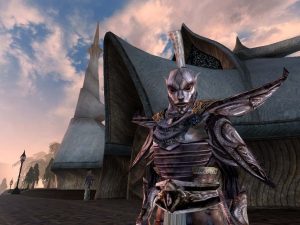
One thought that has occupied my recently is that many of the fantasy worlds I find highly inspiring for the Ancient Lands seem to share some common features or at least aesthetic. The two biggest influences are Morrowind and Planescape, and I know that the former was directly inspired by Glorantha. And I was actually surprised that Glorantha came into existance completely independently from Tekumel. I had assumed that there’s a direct link between the two, but both appeared in the world of fantasy games in 1974/1975, the very dawning days of RPGs. I’ve been wondering if there’s a name for the style shared by these worlds but it doesn’t seem to be the case.
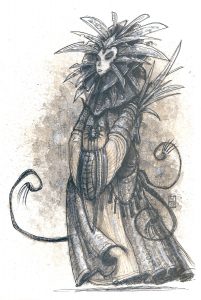
Looking further into it I also remembered additional settings that seem to share at least some similarity. There’s the Young Kingdoms from Michael Moorcock’s Elric stories, Dark Sun, and what I’ve seen also the RPGs Talislanta and Exalted. But it might all have started with Clark Ashton Smith’s proto-Sword & Sorcery tales set in Hyperborea and Zothique (though I admit only having read the former).
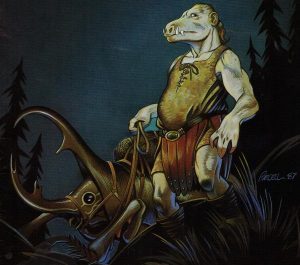
One term I’ve often seen to describe both Smith’s stories and Barker’s Tekumel is baroque. Which is described as an “artistic style which used exaggerated motion and clear, easily interpreted detail to produce drama, tension, exuberance, and grandeur in sculpture, painting, architecture, literature, dance, theater, and music” or “characterized by grotesqueness, extravagance, complexity, or flamboyance”. Yeah, that seems to about fit.
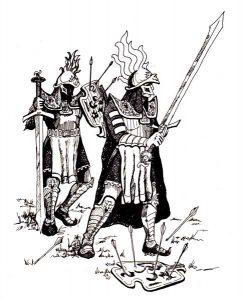
What all these settings have in common is that they are clearly not an imagined ancient history of Earth, but set in worlds that are only distantly “earthlike” in having mountains, forests, and seas and populated by cultures and creatures that have no obvious earthly counterparts. (Glorantha and the non-Morrowind parts of The Elder Scrolls aren’t sticking too close to that.) It’s something you can also find in Star Wars that adds spaceships and lasers to the mix but otherwise plays it perfectly straight. This is what sets them apart from the Tolkienian mainstream but also Howard’s Hyborian Age, which tend to be close to alternate histories with magic set on Earths with the coasts and rivers redrawn.
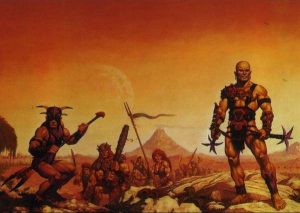
So: Baroque Fantasy?
It’s not a term that has really been used so far, but I think it is definitly a thing that exist and has regularly shown its face through the last 40 years, often to very high praise. (I’ve found it used once, for exactly the same idea.) When you say baroque it comes with the connotation of “elaborate” and “complex”, and often also “confusing”. But I don’t think that it’s really necessary to have worlds with giant piles of information to evoke this aesthetic. Glorantha and The Elder Scrolls are massive beasts of settings, I’ve heard Tekumel is not very accessible either, and fully grasping Planescape means a lot of reading. (Though if you can get your hands on the box sets, the later is not too difficult to understand.) Hyperborea, Elric, and Dark Sun are all kind of borderline or fringe examples, but they all make do with very little exposition. And as a player, both Morrowind and Planescape can be a total blast even when you explore them without having any clue what you’re getting into.
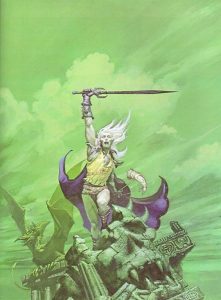
The key elements of the baroque that makes this term applicable to this style of fantasy are extravagant, flamboyant, and grotesque. And I think that few people would content these qualities in the worlds I named. There is a certain downside in that baroque also is the name for a time period in European history with a distinctive architecture, music, and fashion, which don’t have anything to do with these works of 20th century fantasy. But it’s certainly a term that would be quite fitting.
